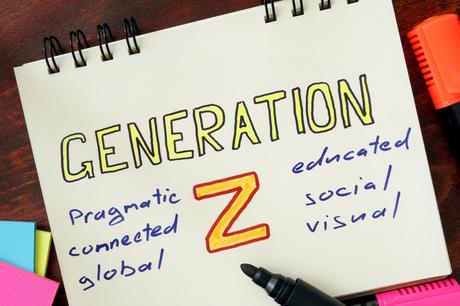

Move over, avocado toast-loving, fabric softener-killing Millennials: there's a coveted, new demographic in town. It's Gen Z, a group comprising those born between 1995 and 2005. Right now, their collective purchasing power is nearly $44 billion. They're also about to flood into the workforce. Are you integrated marketers salivating yet?
Here's the catch. They HATE advertising and marketing. They don't watch TV. You can't pry them from their smartphones, and more than half of them use ad-blocking technology.
How do you solve a marketing puzzle like Gen Z?
Go Where They GoHow's this for challenging: 69% of Gen Z think ads are disruptive (not in the good way). Gen Z doesn't watch TV and when they're streaming, 82% of them skip ads. To reach them, you're going to have to be really, really smart and put yourself where they are.
Marketing Profs' Mark Bradley writes about his own struggles trying to reach Gen Z with traditional media. In a stroke of genius, his agency purchased charging outlets in airports for the sole purpose of putting marketing messages there. The plan worked, and it should inspire you to dig deeper and get creative. As he puts it, "Often, marketing opportunities are hidden in plain sight."
Get Out (of Home)Even though Gen Z is the most digitally savvy generation, they love out-of-home media. In one study, 84% of Gen Z participants said they paid attention to outdoor - compared to just 32% who reported feeling positive about online ads.
Here's why: digital media is, by definition, intrusive and disruptive. Outdoor isn't trying too hard: it's just hanging out, respecting your space, waiting for you to notice it. In fact, one participant described OOH media as "relaxing."
Out-of-home means more than billboards: it can be storefront signage, including window graphics, banners, flags, etc., guerilla marketing, POS displays, interior and floor signage, and even vehicle wraps.
Micro-influencers and Real TalkGen Z has grown up in an era of fragmented media and hyper-personalization. While they may follow social media behemoths such as Ariana Grande or Justin Bieber, they're listening to, and interacting with micro-influencers - personalities with followers in the thousands who are passionate about niche interests like organic cooking, travel, or career advancement.
Part of this appeal is that micro-influencers are authentic, speaking for themselves in a real, relatable voice. And that all leads to trust for integrated marketers - at a fraction of the cost. Even if influencer marketing isn't right for your company, you can embrace the lessons about transparency, tone, and trust.
